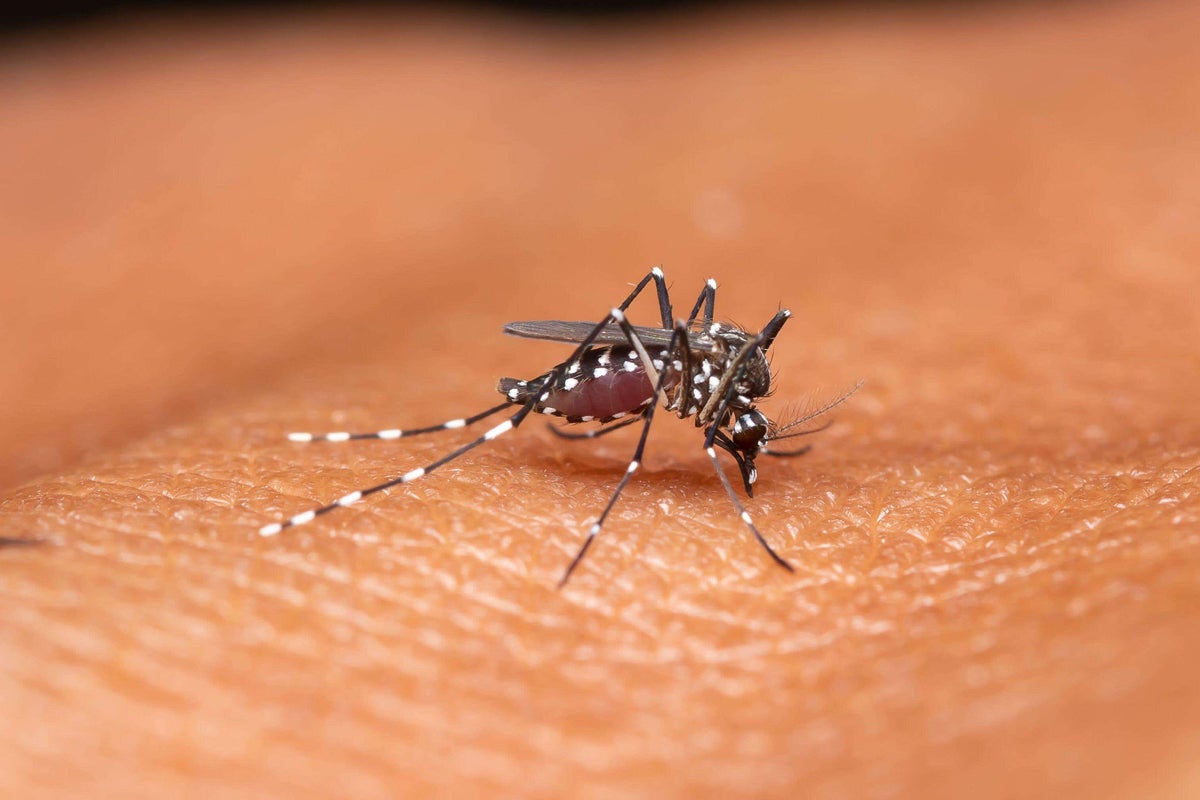
Support truly
independent journalism
Local parks and fields have been shut down in several counties in eastern Massachusetts following the outbreak of a rare and potentially fatal, mosquito-borne virus.
The Massachusetts State Department of Public Health (DPH) announced on Saturday that aerial and truck-mounted spraying for mosquitoes would take place, after the emergence of Eastern Equine Encephalitis (EEE) virus.
According to the department, the virus is a “rare but serious and potentially fatal disease” that can affect people of all ages. On August 16 a man in his 80s from Worcester county became the first human case to be recorded this year.
EEE is generally spread to humans through the bite of an infected mosquito. Symptoms can include fever, headache, vomiting, diarrhea, seizures, behavioral changes, and drowsiness, according to the Center for Disease Control and Prevention (CDC).
Approximately 30 percent of people with eastern equine encephalitis die, and many survivors have ongoing neurologic problems. There is no vaccine or treatment for EEE.
The season’s first EEE-positive mosquitoes in Massachusetts were announced on July 3 from Carver, but others have previously been identified in multiple other counties.
The DPH said truck-mounted spraying for mosquitoes would take place in Plymouth County and parts of Worcester County. As of Saturday, 10 communities in Massachusetts had been raised to high or critical risk for EEE, the department said.
The eight communities in the aerial spray zone are Carver, Halifax, Kingston, Middleborough, Plymouth, Plympton, Rochester, and Wareham.
The five communities in the truck spray zone are Douglas, Dudley, Oxford, Sutton, and Uxbridge. Spraying is expected to occur during the course of next week and is scheduled to take place overnight.
“We have not seen an outbreak of EEE for four years in Massachusetts,” said DPH Commissioner Robbie Goldstein.
“This year’s outbreak and activity raise the risk for communities in parts of the state. We need to use all our available tools to reduce risk and protect our communities. We are asking everyone to do their part.”
During the last EEE outbreak in Massachusetts in 2019-2020, there were 17 human cases and seven deaths.
“Due to the increased EEE risk and the first human case of the season, the state is taking decisive action to protect public health,” said MDAR Commissioner Ashley Randle. “Aerial spraying will target mosquitoes carrying the EEE virus.
“While these measures are crucial for reducing transmission risk, it’s vital for everyone to stay vigilant and follow personal protection guidelines to safeguard our community.”
The pesticide used is Anvil 10+10 which has been extensively tested and used in both ground-level and aerial spraying in the US to control mosquitoes and is approved by the Environmental Protection Agency (EPA).
Residents in the affected areas have also been advised to avoid mosquito bites by using repellant and being aware of peak mosquito hours, mosquito-proofing their homes and protecting their animals.







